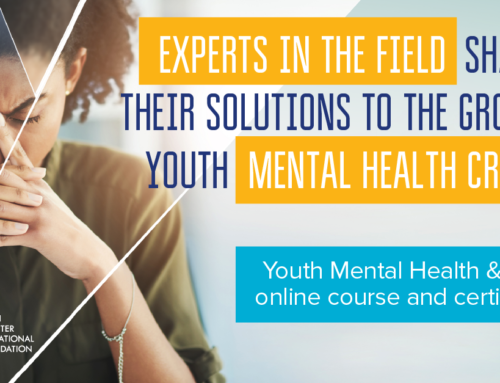
Non-traditional forms of education have gained popularity in the past few decades. A rise in homeschooling, unschooling, and online tutoring makes it obvious that many parents are thinking outside the box of public schooling to advance their children’s education.
With this comes a rise in autodidacticism in children. Dictionary.com defines autodidacticism as “the process or practice of learning a subject without a teacher or formal education.” Or, in other words, self-education.
But self-education is nothing new.
Well-educated people throughout history have, either entirely or to a large degree, taught themselves. And not only taught themselves, but become some of our most esteemed scientists, politicians, and authors.
It would seem that self-education produces intellectual, motivated, and talented children. In fact, some have embraced it as a lifestyle. The Boston Globe reports that 20% of homeschoolers today are “unschooled,” a method of education where the child decides what he or she is going to learn that day depending on his or her current interests. Non-traditional schooling has taken a foothold in today’s society.
With the popularity of technology and the Internet, education resources are more accessible than they have ever been. Today, there’s more potential for autodidacticism in children and young people than ever before.
Of course, just because something is popular doesn’t mean it is a good idea. The rise of autodidacticism may leave parents wondering if self-education is something to be welcomed, or if it will stifle their children’s development.
How people self-educate
Most children practice autodidactism naturally to some extent, no matter the path their parents take to educate them.
Even if they’re in a classroom most of the day, self-education happens on the playground, at home at the dinner table, or reading a book before bed. Children are instinctively curious and soak up information around them like living sponges.
But there’s no denying that some people educate themselves better than others. People with greater capacities for concentration and who learn better in hands-on situations are natural autodidactics. They have the patience and motivation to learn and master a subject or skill without the oversight of a teacher or mentor.
Other people learn better in classroom settings. For them, mastery comes from structure.
It’s revealing to study famous people throughout history who taught themselves almost everything they knew. Abraham Lincoln famously had less than a year of formal schooling, never went to college, and became President of the United States with almost nothing but a solid foundation of self-education. Benjamin Franklin didn’t attend school after age ten, but that didn’t stop him from making some of the most astounding and useful scientific discoveries of his era.
Similarly, Michael Faraday, the “father of electronics,” never learned more than basic math and reading and never attended college. Charles Dickens only went to school off and on until he was fifteen, then taught himself the rest. Agatha Christie reportedly taught herself to read at age five.
Autodidactics are driven, motivated people. They often manifest as pioneers in their field, artists, writers, and inventors. They’re out-of-the-box thinkers.
Encouraging autodidactism in your child is a sure way to create a smart, life-long learner.
The benefits of autodidacticism
When it comes to self-directed learning, three main benefits stand out.
1. A deeper learning experience
Historically, autodidactics have filled in the gaps in their education by reading and studying on their own. While today there are laws in place to make sure children get a full grade school education, many—if not most—people believe there are still things to be learned and mastered beyond the classroom.
Parent Co. states that “self-directed learning is closely linked to the idea that children do not learn when they are passive recipients. This constructivist view of education asserts that children learn best when they are engaged in the learning process.” Some educators are concerned that our public schools are doing nothing more than “teaching to the test” by mainly focusing on children memorizing information to successfully pass standardized tests. “[M]any educational systems around the world still primarily judge performance by how well a child is able to reproduce what his/her teacher has taught, rather than by the child’s critical thinking or creative skills,” Parent Co. observes.
To foster self-education, we must do more than give children the bare minimum.
Read more: The Pros and Cons of Standardized Testing
2. Increased motivation
The Hechinger Report says that “Students who do their work because they’re genuinely interested in learning the material are few and far between.” Instead, for many students “getting a good grade and outshining their peers—not learning itself—becomes the goal of school.” They cite a 2017 study that showed that a whopping 74% of fifth-grade students felt engaged in school. That number crashed to 34% by grade twelve.
The love of learning is rare these days, but children who self-educate have an advantage. If a child is confident that he can teach himself something without much guidance or instruction, his motivation soars. He’s on his way to becoming a confident, informed adult who can accomplish whatever he sets his mind to.
3. Life-long learning
Autodidacticism in children creates a spirit of life-long learning. If children are directed by their parents, educators, and mentors to pursue education because they love it or because it will be useful to them, they’re likely to become well-rounded adults.
A study by Pew Research Center explored the motivations behind self-education in adults several years ago. The reasons Americans gave for learning new skills varied widely. Some wanted to “make their life more interesting and full.” Others “wanted to learn things that would help them keep up with the schoolwork of their children, grandchildren or other kids in their lives.”
Is this the kind of lifestyle you desire for your children when they leave your home? You’re not alone! If you want to raise a life-long learner who is eager for knowledge and who enjoys investing in themselves and others, training your child in the practice of autodidacticism will set them up for success.
The drawbacks of autodidacticism
After looking at the wonderful benefits of autodidacticism, it’s easy to think there’s nothing but good things to be said of self-education.
However, there are some weighty drawbacks to consider.
First, the most obvious disadvantage to a purely self-educated lifestyle is the lack of a mentor or teacher. Education Week says that mentors “serve as a thought partner for students on their academic journey and help empower students to become autonomous learners and agents of their own change.” A mentor can be anyone: a parent, a teacher, an older sibling, or a grandparent.
A mentor or teacher can help the child structure his or her day and academic studies. A gentle hand is needed to correct the child, help choose worthwhile activities, and ask and answer questions.
Lack of all structure is dangerous to the development of a child, even though some do seem to need less structure than others to thrive. Children simply do not have the self-discipline needed to educate themselves fully when they’re young. The prefrontal cortex of the brain, the part that handles logic and impulse control, isn’t fully developed until the age of 25.
The proof of children’s inability to fully self-educate is seen in the devastating effects that the distance learning during the COVID-19 pandemic had on education, with NBC News reporting that, “the average student in grades 3-8 who took a math assessment [in the fall of 2020] scored 5 to 10 percentile points behind students who took the same test [the year before].”
Leaving children to manage their own time in the hopes that they will tune into a Zoom meeting for classes every day doesn’t work. Schools tried this and failed.
But is there still hope for children to become disciplined, life-long learners?
Absolutely!
How to raise an autodidactic
Fostering autodidacticism in your child can be a great supplement to public, private, or homeschooling.
- Be open to teachable moments. Let your child ask questions.
- Cultivate an atmosphere of critical thinking in your home
- Go to the library and stock up on books on your child’s current interests.
- Provide other resources like science kits, kid-friendly educational websites, and educational videos.
- Teach your child to love learning by first being curious about the world around them.
Raising a child to be autodidactic will take time and attention on your part. But the reward is a disciplined, life-long learner who has the right tools for success as an adult.





[…] allows children to receive the personalized and individualized education that most kids need. A public school setting simply can’t meet a student’s needs by catering to […]
[…] and journey into a world of independent self-education. This self-taught phenomenon is known as autodidacticism, which is motivated by self-determination and enthusiasm for learning independently. Successful […]
[…] and journey into a world of independent self-education. This self-taught phenomenon is known as autodidacticism, which is motivated by self-determination and enthusiasm for learning independently. Successful […]
[…] and journey into a world of independent self-education. This self-taught phenomenon is known as autodidacticism, which is motivated by self-determination and enthusiasm for learning independently. Successful […]
[…] to learn and travel the world of independent self-education.This self-taught phenomenon is known as Self-study,in short motivated by self-determination and a passion for self-study. Successful entrepreneurs […]
[…] learn and travel in a world of independent self-education. This self-taught phenomenon is known as self-taughtWhich one is motivated by self-determination and enthusiasm for independent learning. Successful […]
[…] and journey into a world of independent self-education. This self-taught phenomenon is known as autodidacticism, which is motivated by self-determination and enthusiasm for learning independently. Successful […]
[…] allows children to receive the personalized and individualized education that most kids need. A public school setting simply can’t meet a student’s needs by catering to […]